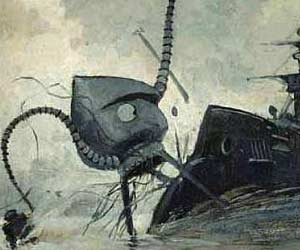The First Men In The Moon
Select Format
Select Condition 
Book Overview
"The First Men in the Moon" is a classic science fiction novel written by H. G. Wells. It was first published in 1901 and is known for its imaginative portrayal of a journey to the moon and encounters with alien life forms. H. G. Wells was a prominent figure in early science fiction literature, and this novel is one of his notable works.
Customer Reviews
A fun read, and a fascinating sci-fi book
H.G. Wells at his best
Maybe my favorite sci-fi book of all
Excellent annotation for excellent science fiction
Great development of characters
The First Men in the Moon Mentions in Our Blog

A hundred years ago, novelist H.G. Wells predicted that science would be "king of the world." Titanic's Jack Dawson may take issue with that claim, but he’d have a tough time disputing the compelling influence Wells had on politics, society, and the future that extended far beyond the literary realm. Considering Wells is one the founding fathers of sci-fi (along with Jules Verne and Edgar Rice Burroughs) and the author of The Time Machine, The Invisible man, The Island of Dr. Moreau, and The War of the Worlds, that's saying something.





